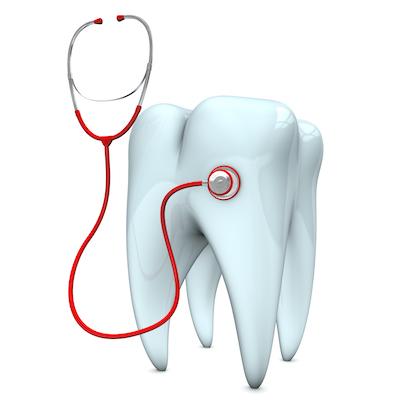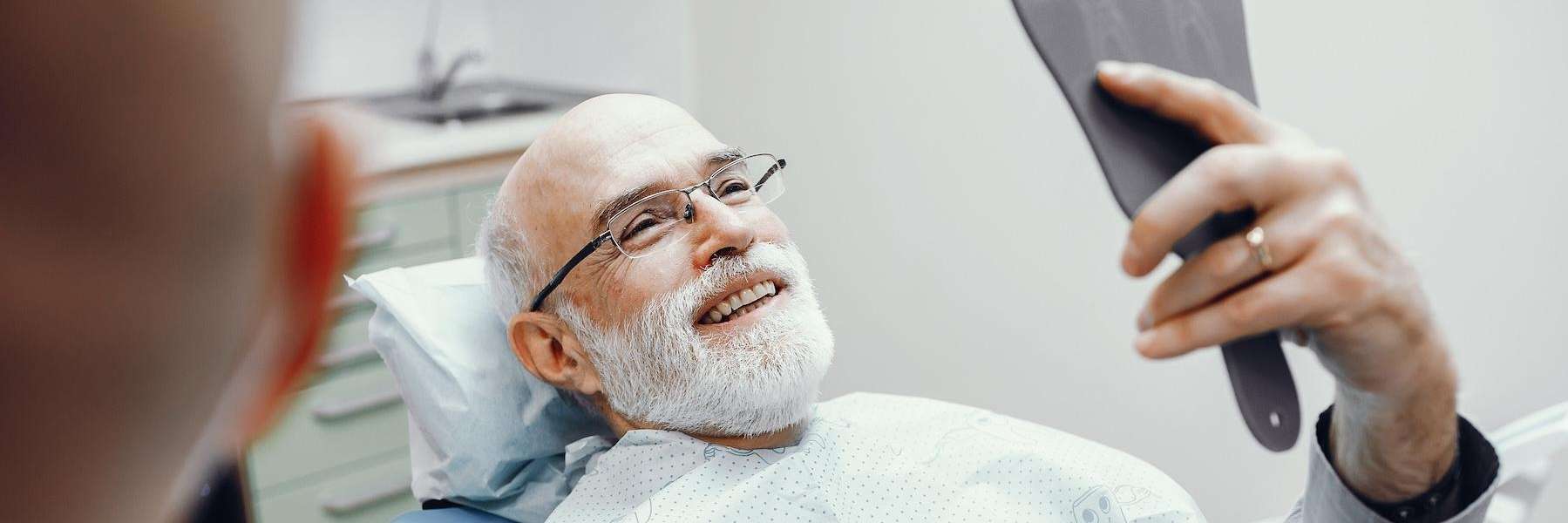
You likely need a dental crown if you have a damaged or at-risk tooth. If you have a missing tooth or one that is cosmetically flawed, you may also benefit from these durable restorations.
This blog explores dental crowns, how we create them, how they can benefit you, and the best ways to care for them.
If you need or want a dental crown, here are a few reasons why:
- Weak or at-risk tooth support
- Concealing cosmetic flaws
- Hiding a damaged tooth
- Lengthening a short tooth
- As part of tooth replacement
What Is a Dental Crown?
A dental crown is a durable, hollowed-out restoration that mimics the color and shape of your teeth. Your Milwaukee dentist can fit it over a treated tooth to the gumline, or we can use crowns to aid in tooth replacement, specifically through bridgework and single dental implants.
A dental bridge is one or two artificial teeth between dental crowns. The crown and bridge is a single prosthetic. Your dentist in Milwaukee uses the crowns to anchor the bridge to healthy teeth, allowing the prosthetic to fill your smile gap. In dental implant dentistry, a dental crown tops a dental implant post after an integration period—implant fusing to bone.
In many cases, dentists recommend dental crowns as part of restoration dentistry. Patients also request them to conceal general tooth flaws and discoloration.
Because crowns are widely used and versatile in dentistry, we rely on only the finest materials and most trusted labs to fabricate these vital restorations.
How We Customize Your Dental Crowns in Milwaukee, WI
Customization means the difference between a natural-looking restoration and one that stands out among your natural teeth, looking odd and out of place.
First, the dentist prepares your tooth for crowning. This involves removing old filling material, jagged edges, and more. We want to create a suitable space for your new restoration.
Then, your dentist takes careful impressions of the tooth and sends the results to a trusted lab for fabrication. Meanwhile, you leave our dental office with a temporary crown to protect the treated tooth and keep your smile intact.
When the crown arrives in our dental office, you come in for a final fitting and adjustments to shape, fit, and color.
Finally, the dentist cements the custom crown over your treated tooth.
From this point, you can enjoy meals and smile without worry!
How Dental Crowns Benefit You
Dental crowns offer many significant benefits. Below, we share just a few.
Strengthening a Weak Tooth
The inner workings of tooth structure may weaken after an injury or treated root infection. The dental crown strengthens a weak or at-risk tooth by reinstating stability through support. The crown means a safe space between the weak tooth and your bite force.
Protecting a Damaged Tooth
Crowns protect cracked teeth and those that have been treated for deep decay. Whether it’s a chip, fracture, or similar damage, the dental crown can save the tooth from loss or the need for extraction. It restores a broken tooth and so much more.
Hiding Tooth Flaws
Some tooth flaws are merely cosmetic, but cosmetic issues can influence one's well-being and how one interacts with others. Your West Allis dentist can often crown teeth that are flawed cosmetically.
This includes:
- Discolored and stained teeth
- Cracked and chipped teeth
- Unusual spacing between teeth
- Unusual tooth shape
Short and Worn Teeth
Short, worn teeth can be more than cosmetic issues. When your bite surface is not level, it means premature wear and tear on certain teeth. An uneven bite surface can also stress your jaw joints, leading to discomfort and even temporomandibular joint disorder (TMD/TMJ).
Tooth Replacement
Dental crowns support dental bridges, providing a fixed solution to tooth loss. Additionally, they crown single dental implants to give you a custom and lasting solution. If you have missing teeth, we encourage you to consult the dentist. Missing teeth can impact your emotional well-being and your oral health.
Dental Crown Care and Upkeep
Dental crown care is straightforward because there are no special steps. There are no products or brushes to buy. However, it’s essential to follow these steps:
- Visit your dentist every six months for checkups and teeth cleanings.
- Brush your teeth at least twice daily and floss no less than once.
- Avoid biting into taffy-like foods or hard objects with your teeth or dental crowns.
- Always report oral changes to your dentist, including gum swelling, crown loosening, or tooth sensitivity.
 Remember, toothaches, swelling, and ongoing sensitivity are considered dental emergencies. We are your one-stop shop for dental emergencies, restorations, general dental care, and more!
Remember, toothaches, swelling, and ongoing sensitivity are considered dental emergencies. We are your one-stop shop for dental emergencies, restorations, general dental care, and more!
Dental Crown Costs in West Allis, WI
Dental crown costs vary for several reasons, including the number of teeth that need to be restored and the complexity of your case. After the dentist evaluates your situation, we'll better understand the costs. We’ll share this information with you before proceeding with treatment.
In some situations, dental insurance covers some or all of your restorative dentistry costs, but it has limitations. We can explore your policy to understand your covered benefits better.
Urgent Dental Care accepts a wide range of insurance plans—you can call us for details. We also work with financing through CareCredit, LendingClub, and SunBit.
Contact Your Milwaukee Dentist Today
Our team always prioritizes your healthy and restored smile. If you have a damaged or missing tooth and have questions or would like to book a consultation with the dentist, call us today at (414) 667-0911.
